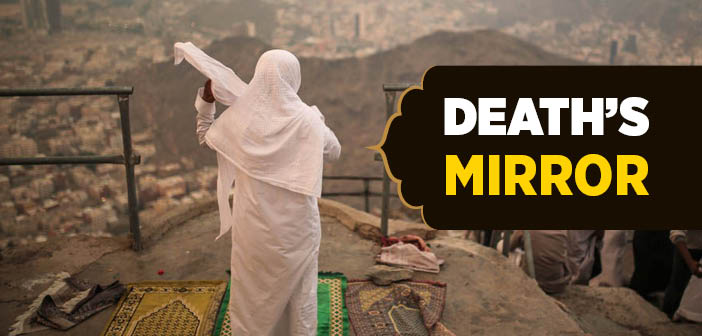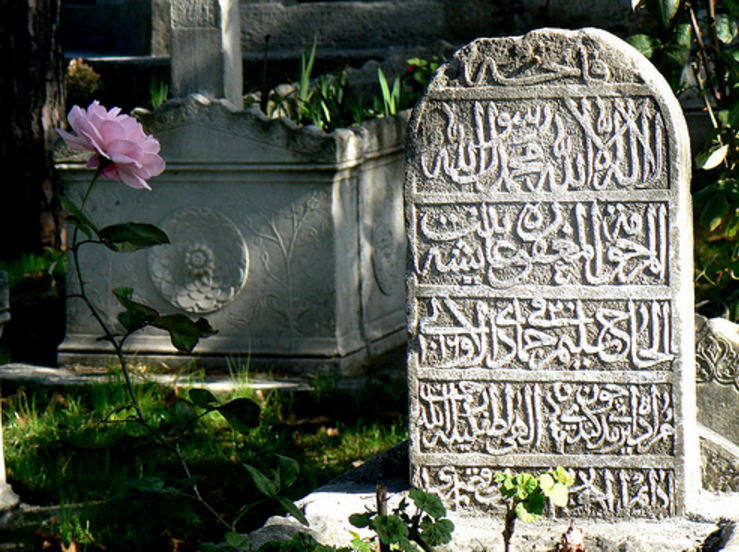What is the blessings of the grave? What does the quran say about the grave?
Righteous believers who lead their worldly lives in accordance with the divine commands and prohibitions and who in this way turn it into a means of eternal happiness, will be favoured with blessings in the grave that Allah will bestow upon them as He wills.
As ‘Ata al-Khorasani (may Allah have mercy on him) said:
“Allah bestows His mercy most upon His slave at the time when they have been placed in the grave and their loved ones have left them.” (Qurtubi, Tadhkira, p. 345)
The following bounties can be listed among those with which a believer will be favoured in the grave:
The believer’s grave is expanded, filled with bounties and is rendered a garden from among the gardens of the Garden. A believer is shown their place in the Garden. Prophet s and martyrs begin immediately being honoured with the bounties of the Garden.
The Messenger of Allah (may Allah bless him and grant him peace) has informed us that the Prophet s and Messengers are alive in their graves and that they offer prayers there.[1] He affirms that during the Night Journey (Isra’) and the Ascension (Mi’raj), he saw the Prophet s Musa, Isa and Ibrahim, upon them all be peace, offering prayer and that when the time for prayer came, he led all the Prophet s and Messengers in congregational prayer. (See Muslim, Iman, 278)
It is stated in a prophetic narration:
“The Prophets are alive, and they offer prayer in their graves.” (Haythami, VIII, 211)
“I happened to pass by Musa on the occasion of the Night journey near the red mound (and found him) offering his prayer in his grave.” (Muslim, Fada’il, 164)
There are other believers that are also honoured in such a way. Despite the fact that a deceased person no longer has any responsibilities or obligations, the prayer offered by the Prophet s and some righteous servants is a prayer stemming from a love of worship and is offered in great spiritual absorption and exuberance.
Again, as indicated in various Traditions, the Messenger of Allah (may Allah bless him and grant him peace) saw some Prophets recite the ritual invocation of God during the Pilgrimage and circle the ancient house of the Ka’ba.[2]
It ought to be said here that the true nature of the life of the grave can only be fully perceived at the level of certainty that arises from direct experience. Descriptions in the Qur’an and the Sunna inform human beings in accordance with a worldly human conception. Understanding its essential reality, however, is beyond human perception. The duty of the believer in any case is to be busy preparing for the grave, rather than trying to fully comprehend what, in essence, it really is. To a companion who asked, “When will be the Last Hour?” The Messenger of Allah (may Allah bless him and grant him peace) simple responded with the question:
“What have you prepared for it?”[3]
In precisely the same way, the duty of the believer is not to get caught up in aspects of these matters in ways that they are not responsible for, but to engage instead in preparations for such a life which directly concerns them.
Just as human beings transitioned through different realms, each with their own conditions, before coming to the world, at their death they will be born once again into a realm with its own life conditions once again. The life of the Next World will most probably be very different to the life of the grave. Or our Lord will give us different faculties, or capacities of feeling and perception in every realm through which we pass (that are particular and in accordance to each realm).
In summary, it can be said that in such matters that transcend the bounds of human knowledge and intelligence, we have to say:
La ya’lamu’l ghayba illallah: “None knows the Unseen except Allah,” and Allahu a’lamu bi al-sawab: “(Surely) Allah knows best.” Deferring the last word to the endlessness of silence seems indeed to be the best path.
[1]See Muslim, Iman, 278. cf. Abu Nu’aym, HIlya, II, 319; Ibn al-Jawzi, Sifat al-Safwa, III, 263.
[2] Bukhari, Libas, 68; Muslim, Iman, 268; Ahmad, I, 232; Hakim, II, 638/4123.
[3] See Muslim, Birr, 163.
Source: Osman Nuri Topbaş , Journey To Eternity, Erkam Publications





